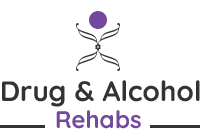When a person is struggling with an addiction to drugs or alcohol or both deciding on what type of drug treatment center they need – it is vital. Addiction and alcoholism are complex diseases of the mind and emotions and stems from multiple influencers. To select where to get help, it is first best to know that a quality substance abuse treatment center must provide professional care and support for all phases of an individual’s recovery. Phases include detox, treatment, and step-down levels of continued care.
Simply going to detox to get clean and sober or completing a rehab program and then returning home is not how successful long-term sobriety is usually attained.
In the Principles of Drug Addiction Treatment: A Research-Based Guide, provided by the National Institute on Drug Abuse, NIDA, it recommends that a person commits to long term treatment if possible. It has been proven that the longer someone remains in a treatment program, the greater their chances are at remaining clean and sober long term.
Remaining in treatment for an adequate period is critical. The appropriate duration for an individual depends on the type and degree of the patient’s problems and needs. Research indicates that most addicted individuals need at least 3 months in treatment to significantly reduce or stop their drug use and that the best outcomes occur with longer durations of treatment. (NIDA)
Many persons do achieve stable recovery after detoxification and a minimum treatment stay of one month; we are not saying that it is not possible. But it is not typical. An accurate portrayal of most people’s stories of how they got clean and sober required many attempts and relapses until they finally found the right program at the right time in their life to promote their sincere willingness to want to stop using drugs and/or drinking.
 Why Timing for Treatment Matters
Why Timing for Treatment Matters
Recovery is a lifelong process that requires unrelenting commitment and willingness by the individual to give up all drugs and alcohol, and to change how one thinks, feels, and reacts to the world around them. Recovery begins the moment a person asks for help. After months or years of substance abuse, the amount of lies and deceptions that these people spin and handle, at some point, comes unraveled. They hit bottom or know they are on the way to the bottom.
When a person asks for help, they have surrendered to the fact that they can no longer exist as a drug addict or alcoholic. Taking the right action at this time can often determine successful recovery for the individual, or it can be a missed opportunity, and they will return to their addictions. In some cases, an individual will only desire to detox.
This can also be an opportunity for them. For many recovering addicts and alcoholics, once they get clear-headed at detox, they continue to treat their problem with on-going addiction care through a rehab program or outpatient facility. Simply take advantage of the minutes that any addict or alcoholic expresses a desire to stop their substance use and get them professional help quickly. The first step of the assessment process in a treatment facility is creating a personalized treatment plan for each client.
Accurate Addiction Care for Each Situation
Addiction and alcoholism stem from many influences. Environmental factors during childhood or early teenage years, such as neglect, violence, sexual abuse, or trauma, predispose addiction. Family history of substance abuse, as well as emotional and mental health diagnoses, also contribute to addiction and alcoholism. Since the causes of why someone can become an addict or alcoholic are serious, finding a treatment center that provides an individualized treatment plan is paramount. A well established and thorough treatment center will offer a unique treatment plan that is tailored to the individual.
Additionally, another characteristic that a comprehensive and targeted treatment program and center will possess is the presence of psychiatrists and or psychologists who specialize in addiction. If the person who requires treatment is not assessed by regularly or initially by a doctor of psychiatry or psychologist, emotional or mental health disorders could go undiagnosed or not be treated. When a person does have psychological or emotional health diagnoses, there are specific programs that can help them.
Many addicts and alcoholics have a dual diagnosis. A dual diagnosis is when the individual is addicted to drugs and or alcohol and has an emotional or mental health disorder, such as anxiety, depression, PTSD, or bipolar. Since dual diagnoses are so present in addiction and alcoholism, there are treatment centers and programs specifically for dual diagnosis.
It is best to confirm that a treatment center provides the following types of structure and program formats:
- Individualized Treatment Plans
- Evidence-based forms of Therapy, such as Cognitive Behavioral Therapy,
- Targeted Treatment Programs that are Specific to Substances
- One on One Counseling
- Relapse Prevention
- Holistic Therapy
- Family Counseling
- Dual Diagnosis Programs
- Gender-Specific Treatment Programs
- Numerous options for Continued Care (aftercare, sober living, alumni programs)
Steps to Achieving Sobriety
If a treatment center has the above characteristics, then it will be essential to allow the individual enough time to walk through all the phases of recovery. It cannot be stressed enough how critical it is that a person who is struggling with an addiction to drugs or alcohol allow themselves plenty of time to heal. The phases of a person’s recovery that require professional support and targeted treatment programs start the day the person asks for help. When this second happens, the person will want to know that they will quickly get help. In most cases, addiction and alcoholism cause physical withdrawal symptoms that cannot be tolerated without medication.
Medical Detox
The first phase of treatment needs to take place quickly so that the person who is willing to get help can feel better as soon as possible. A medically supervised detox will provide safe and effective medications to reverse or minimize withdrawal symptoms. Opiates, alcohol, and benzodiazepine addiction are the most common situations where entry into a medical detox is urgent.
Residential or Inpatient Treatment
The second phase of treatment is where the real work begins, and the person will need the right support and guidance to make it. This is when admission into an inpatient or residential treatment that is specific to their individual needs and addictions occurs. A 90-day residential treatment program or inpatient allows a person to remain clean and sober long enough that they begin to feel better and develop coping skills. This level of care is often the most important as it establishes what challenges the person needs to work on and heal.
Continuing Care Programs
Once a person completes their residential/inpatient treatment program, then they are ready for more independence but not total freedom. Many treatment centers offer intensive outpatient or outpatient programs that help people adjust from residential or inpatient care. The relapse rate for persons who get out of residential or inpatient and go directly home versus another continuing care program are high. This is why a step-down strategy of support and treatment is so vital.
Sober Living
Heading to a sober living house with others also remaining clean and sober provides newly recovering individuals a superior level of support and encouragement. Sober living is often where people establish themselves in recovery. Sober living is where individuals get jobs, go to school, and readjust to freedom.
